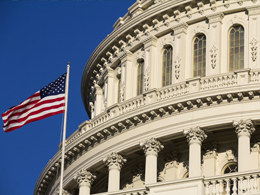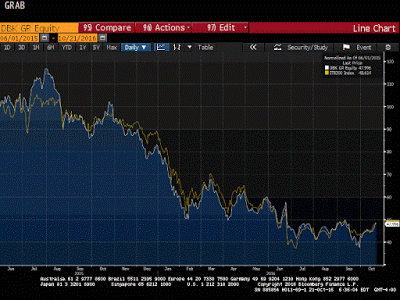What It Would Take to Rig the U.S. Election
by Brad McMillan, CIO, Commonwealth Financial Network
The headlines this week are all about Donald Trump’s refusal to accept his potential defeat in the U.S. presidential race. He has reserved the right to contest the results of the election, doubling down on his claims that the process is rigged. Although this is the first time the issue has arisen in the presidential forum, claims of data rigging have been quite common in recent years.
What would it actually take to rig an election or a data set, and how large is the risk?
A pretty tough feat to pull off
Let’s start with the election. There really is no national election, at least in a mechanical sense, but rather 50 state elections. So rigging “the election” would amount to 50 separate attempts to rig the state elections. Of those 50 elections, 34 are in states controlled by Republican governors, while 31 states have legislatures controlled by the Republican party. Rigging the election on behalf of the Democratic candidate would be difficult when the electoral machinery is largely controlled by the opposite party.
Looking at the county and municipal level, it’s the same story. Many areas would be governed by the party not in on the rigging. And even in an area dominated by one party, you would have to assume that no individuals of the opposite party would step forward as whistleblowers.
Accusations of rigging economic data, principally the unemployment rate, have been made as as well. The arguments above apply here, too. To rig the unemployment rate would take a concerted effort, by a civil service organization, to bias the results. You would have to assume that everyone in the organization would be willing to take that risk and that no one would blow the whistle. Given the difficulties most organizations have just doing what they are supposed to do, that’s a big stretch.
Winning the election honestly would be easier
In short, in any widely dispersed system that's dependent on a variety of procedures and people, it is very difficult (if not impossible) to systemically rig something without being detected and denounced. Rigging the U.S. election would essentially require a conspiracy that involves a majority of the country, including Republicans across the nation. If a candidate could pull that off, wouldn’t it just be easier to win the election fair and square?
The only conceivable way rigging the election might work would be via a single point of control, ideally one that could be influenced remotely without human intervention—which brings us to technology.
The U.S. electoral system does not qualify as easily disruptable in general, but there is one piece that might—the electronic voting machines. This is a real risk, as Wired magazine recently pointed out, but even that risk is limited. Three-quarters of the country will use paper ballots; half of all states conduct post-election auditing; and only five states use direct electronic voting, according to VerifiedVoting.org. The risk presented by voting machines is not, however, the risk that people are talking about.
In short, the concern about a rigged election is similar to many of the end-of-the-world scenarios that I debunk here. While lots of things might happen, most of them don’t. Keep calm and carry on.
*****
Brad McMillan is the chief investment officer at Commonwealth Financial Network, the nation's largest privately held independent broker/dealer-RIA. He is the primary spokesperson for Commonwealth's investment divisions. This post originally appeared on The Independent Market Observer, a daily blog authored by Brad McMillan.
Forward-looking statements are based on our reasonable expectations and are not guaranteed. Diversification does not assure a profit or protect against loss in declining markets. There is no guarantee that any objective or goal will be achieved. All indices are unmanaged and investors cannot actually invest directly into an index. Unlike investments, indices do not incur management fees, charges, or expenses. Past performance is not indicative of future results.
Commonwealth Financial Network is the nation's largest privately held independent broker/dealer-RIA. This post originally appeared on Commonwealth Independent Advisor, the firm's corporate blog.
Copyright © Commonwealth Financial Network














